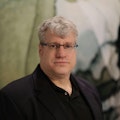Boskalis, through subsidiary SMIT Salvage, reached an agreement with the United Nations Development Program (UNDP) to remove oil from the FSO Safer, moored about 9 km off the Red Sea coast of Yemen and 50 km northeast of the port of Hodeida.
The project is a part of the UN-coordinated operation to remove and transfer more than 1 million bbl of light crude oil from the decaying tanker into a safe, modern tanker, as well as the responsible disposal of the FSO. Constructed in 1976 as an oil tanker and later converted to an FSO, the single-hulled vessel is believed to contain an estimated 1.14 million bbl of oil. The conflict in Yemen has left the vessel without maintenance since 2015, leaving it at risk of explosion or breakup. The UN purchased the FSO in March 2023 to begin a remediation plan.
Project scope for consists of multiple phases. The Boskalis multipurpose support vessel Ndeavor has been prepared in the Netherlands and will sail to Djibouti over the coming 3 weeks. The salvage crew will make final preparations in Djibouti before departing for the FSO. The initial onsite phase will focus on a thorough inspection of the vessel and its cargo.
Once the vessel and its cargo tanks are declared safe, a UN-purchased very large crude carrier (VLCC) will come alongside the FSO, at which point the ship-to-ship oil pumping operation can begin. The ship is undergoing routine maintenance in China and will be on site early May. The FSO Safer tanks will be subsequently cleaned and residual water will be transferred to the VLCC.
The entire onsite operation is expected to be completed within 2 months. Once the Safer is declared clean and empty, it will be prepared for towing to a green scrapping yard under the responsibility of the UN.
About the Author
Alex Procyk
Upstream Editor
Alex Procyk is Upstream Editor at Oil & Gas Journal. He has also served as a principal technical professional at Halliburton and as a completion engineer at ConocoPhillips. He holds a BS in chemistry (1987) from Kent State University and a PhD in chemistry (1992) from Carnegie Mellon University. He is a member of the Society of Petroleum Engineers (SPE).
